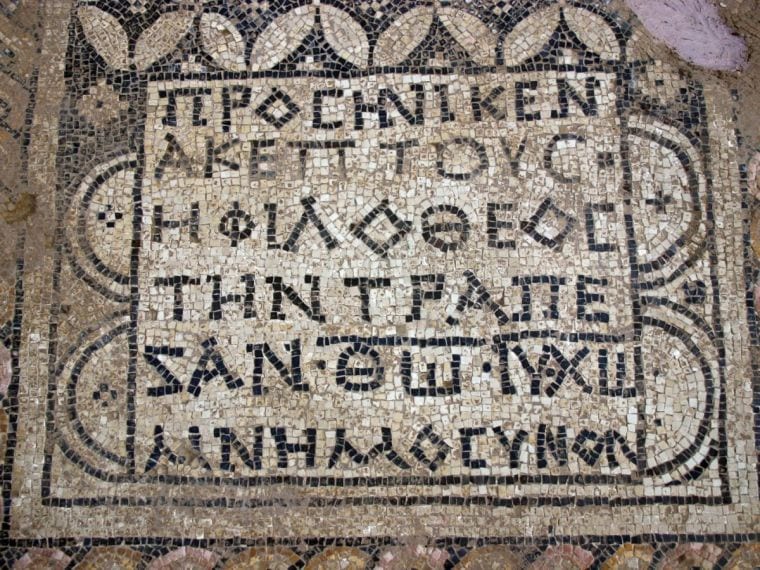An ancient mosaic that ascribes divinity to Jesus Christ is set to go on display for the first time.
The ‘God Jesus Christ’ mosaic stands as one of the earliest-known testaments to early Christian belief in the divinity of Christ. It was found in 2005 through excavations completed by the Israel Antiquities Authority and the University of Tel Aviv, exploring the ancient grounds beneath the British-built Megiddo Prison in northern Israel.
The writing, dated to the year 230 AD, bears three Greek inscriptions, one reading: ‘The god-loving Akeptous has offered the table to God Jesus Christ as a memorial’.
Akeptous is reckoned to be a woman who had contributed her table to the local Eucharist celebrations, according to Haaretz.
The survey uncovered the mosaic among one of the earliest-known Christian houses of worship, part of what was the Jewish and Samaritan village of Othnay.
Dr Yotam Tepper of the University of Haifa, who led the original excavation, said the mosaic was probably part of a prayer hall in the Christian home. Such homes were the centre of Christian community before established Church buildings were introduced in the fourth century, following the conversion of Roman emperor Constantine.
Images of fish – common early Christian symbols – are also present on the mosaic. The ‘Icthys’ (the Greek name for ‘fish’) was a ‘visual pun’ imbued with early Christian doctrine. As an acronym it formed the initial letters for the Greek phrase: ‘Jesus Christ, Son of God, the Saviour’.
The findings are also believed to shed new light on the nature of Roman attitudes to the early church. Traditionally imagined as flatly hostile to the Christian cult, nearby Roman military encampments suggest more tolerance to the new religion.
‘Here the Romans had Christian officers,’ Tepper said. ‘The persecution may have been exaggerated later in the telling. But certainly the tales do not reflect the complexity of the reality, which is that there were Christians in the Roman army.’
The donator of the Christian mosaic appears to be that of a Roman centurion named Gaianus, also called ‘Porophrius, our brother’.
The Megiddo Prison is currently being cleared of inmates to make space for the establishment of the archaeological tourist attraction, which will host the remains of the Christian home, the Roman encampments and seven flour mills from the Ottoman era.




